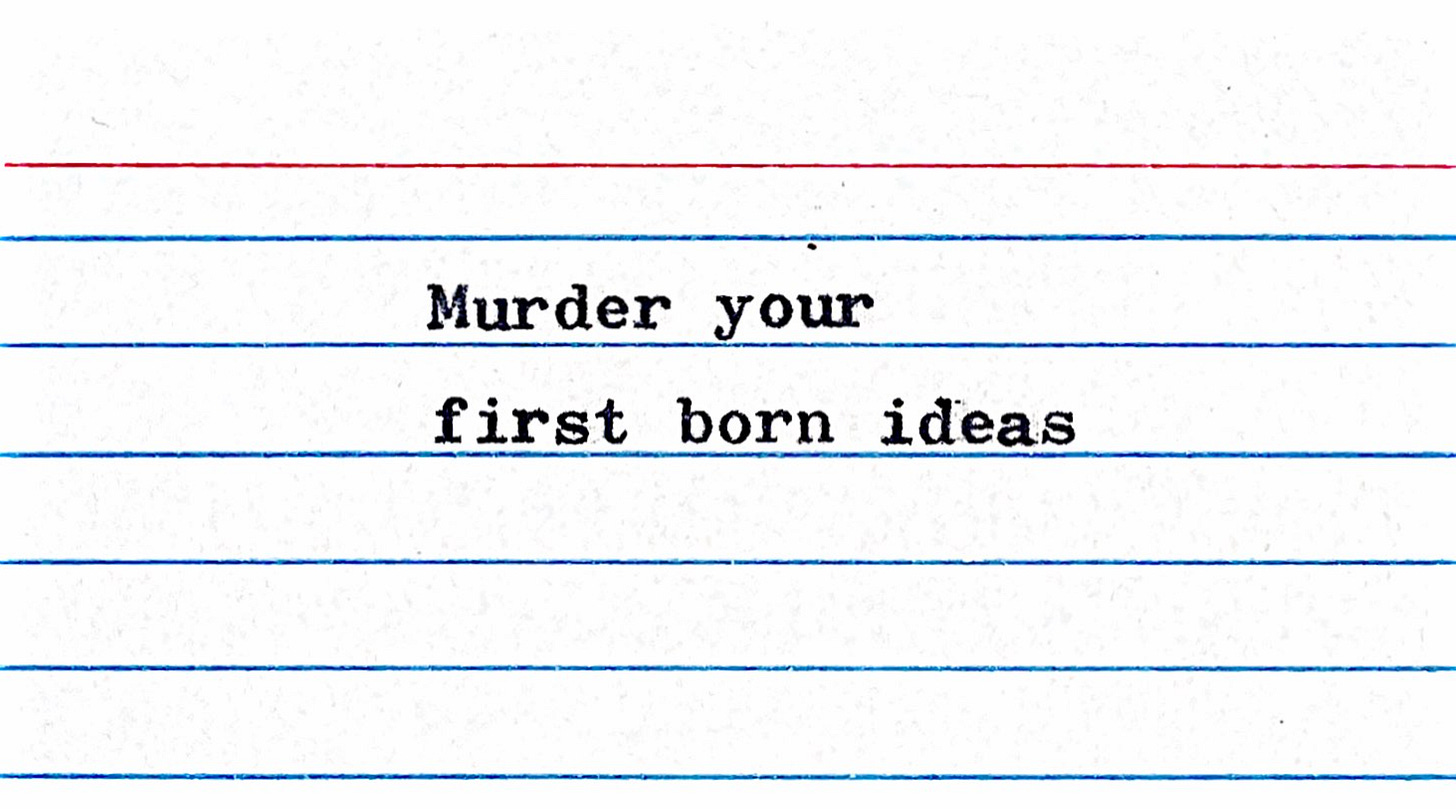Murder your first born ideas
At first you won't succeed, so try, try again
“For every complex problem, there is a solution that is clear, simple, and wrong."
–HL Mencken
Throw out your very first ideas when problem solving or decision making. First ideas come easily because they are obvious. Clichés, tropes, and stereotypes are your brain’s first drafts. They are products of instinct.
Now, your instincts are designed to save your life, so don’t throw those away. But don’t rely on them every single time. For some problems, first is not always best.
Enter the ideation principle of fluency: More is better. The riches are in the ditches and for those you need to dig. No stopping, no judgment, no backspacing yourself.
Here’s an old copywriter’s method. Need a headline? Sit down and write one hundred of them. Clean ones. No gibberish. Imagine that any of them could make it to print.
The first dozen come easily. By thirty-seven it’s a slog. There will be a dozen whose extrusion is so painful, you won’t remember writing them. And then:
Toss out the first pancake.The bottom of the barrel isn’t so badThe road to genius meanders through lacklusterAt first you won’t succeed, so try, try againMurder your first born ideas
Here's why fluency trumps instinct:
First, is that it forces you to think, which is generally preferred. Like a burrito, your brain takes a minute to warm up. Consider your early ideas a “first draft.” You wouldn’t ship your first draft, would you?
Plus, you need some material to work with. Ideation is taking raw dough and yes-anding the heck out of it until it puffs up into something new.
Finally, pragmatism. In warfare, sports, and sitcoms, your adversaries are always anticpating your next move. They can always prepare for obvious strategies. Dare to go where unwilling minds won’t.
Solutions shine when you take the scenic route. Every pudding needs time to jell. The best ideas are at the back of your brain. (In case you’re still not convinced.)
Read deep into the fog; they'll never see what’s coming.



Perfect